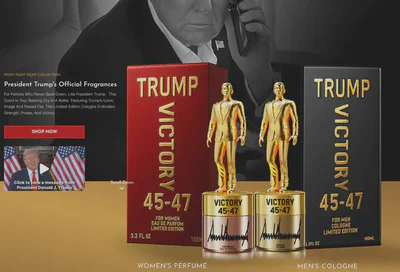President Lee and a late July summit with Trump?

Diplomacy is dead. Where it stood now sits political grift, ego, and Big Mac burger wrappers.
We live in a world where foreign policy is driven by whims; presidential tweets reacting to Fox News and Tucker Carlson sound bites; and whether the leader in question has properly stroked the ego of a septuagenarian game show host with a spray tan problem.
There ain’t nothing nobody can do about the whims. I’ve already given my advice on a content strategy for the Fox News cycle (it’s still unheeded). But what about the third? How can South Korea stroke the orange one’s ego? If South Korea wants to thrive under a future Trump administration, it better act fast—and smart.
My advice? Forget the high-level advisors on deterrence theory, extended nuclear umbrellas, or trilateral cooperation with Japan. Instead, prepare for the real strategic challenge: how to flatter, bribe, stage-manage, and gold-plate your way into Donald Trump’s heart. You don’t need a foreign ministry or an academic who’s written twenty books on nuclear security—you need a casting director and a luxury gift concierge.
So what should Seoul do?
Let’s begin with symbolism. Trump doesn’t care too much about treaties. He likes rewriting them and putting his name to them, but they’re still not as good as buildings, airports, and possibly galaxies named after him. So rename something—anything. How about rebranding the entire De-Militarized Zone (DMZ) as the “Trump Unification and Reconciliation District”.
Imagine, the TURD would be 250 kilometers long and around 4 kilometers wide, stretching from the mouth of the Imjin River in the west to near Goseong on the east coast. A TURD stretching from coast to coast with Trump’s name on it. The Trump TURD could be seen from space!
Does it help peace? No. Does it curry favor? Absolutely. The man once proposed buying Greenland. He doesn’t understand geopolitics, but he understands a plaque with his name on it.
And if you really want results, don’t stop there. Commission a ten-meter-tall bronze statue of Trump shaking hands with a generic Korean child—something sufficiently horrifying to be shared worldwide. Trump will retweet it.
The alliance will be safe for another week.
Next, the gifts. Trump loves gifts—especially ones that he doesn’t need to declare or return. Swords encrusted with jewels, gold medallions, hand-painted portraits of himself saving the world. These aren’t diplomatic offerings—they’re tribute.
Korea paid tribute to Chinese emperors for millenia—not always out of subjugation, but often as a pragmatic gesture to preserve autonomy while acknowledging power. Envoys brought fine silks, ginseng, and flattery to Beijing, securing peace through a well-practiced ritual of deference. This wasn’t humiliation—it was strategy dressed as respect.
In that sense, the instinct to flatter a great power runs deep. So when Donald Trump strides onto the stage with the self-image of an emperor and the attention span of a squirrel, South Korea knows what to do. Tribute must be paid
South Korea should prepare a catalogue of gifts tailored to Trump’s vanity. A gold-leafed book titled “The Great Peacemaker of Asia” (empty inside, of course); a gold-plated Hyundai Genesis embossed with the Trump logo; or perhaps a full-size gold mirror engraved with the words: “History’s Greatest Negotiator.” Better yet, offer him exclusive lifetime membership at one of South Korea’s elite golf courses—free helicopter access, his own locker room, and a private chef who only makes Big Macs from Hanwoo beef.
Use your imagination. Qatar did. Kudos to Qatar on the airplane.
Diplomacy under Trump is often a family business. The Trump children are more than accessories—they’re conduits. Power flows through them like bad decisions through a Mar-a-Lago buffet line.
Want influence? Invite Ivanka to co-chair a “U.S.–Korea Women’s Leadership Summit” where nothing is actually discussed, but the lighting is perfect for Instagram. Give her a vague role in innovation. Maybe let her endorse a line of hanbok-inspired wellness accessories. She’ll remember that. Trump will remember that.
As for Jared—pay for him to take a symbolic advisory seat on a “Korea Peace Corridor” project, ideally one with photo ops, but no actual responsibilities. In the Trumpian universe, access is everything. Credibility is optional.
Now President Lee is going to Washington. He’s at a distinct disadvantage.
Summits with Trump must not resemble diplomacy. They must resemble television. If it looks like a State Department meeting or a State visit to the White House, you’ve already lost. If it looks like an episode of The Apprentice filmed on the DMZ, now you’re speaking his language.
Give Trump a stage, a podium, dramatic flags fluttering behind him. Let him walk slowly toward the camera as if descending Mount Sinai. Maybe throw in some Korean children waving American flags. Allow him to declare, “There would have been war if not for me.” Don’t correct him.
The answer? Ask for the meeting to be at Mar-a-Lago. In the new etiquette of post-diplomatic diplomacy, even the venue becomes a bribe. If South Korea really wants to impress, it should skip the sterile symbolism of the White House and request—no, insist—that President Lee’s summit with Trump be held at Mar-a-Lago. Not only does it flatter Trump’s fantasy that his private club is the true seat of American power, but it also conveniently channels foreign taxpayer money into his personal coffers.
The optics? Appalling. The effect? Immediate. Every luxury suite booked, every overpriced canapé ordered, every valet tip handed over—each dollar edges Trump closer to the next monstrosity in his gold-plated throne room: perhaps a solid-gold dunny with his name on it.
This ain’t policy. It’s performance. Your job is to keep the illusion alive long enough for him to believe he did something important—and then get him to sign something vaguely beneficial.
Last, the Lee team has to learn to abandon self-respect.
If South Korea is serious about earning Trump’s favor, forget defense burden-sharing or trilateral agreements—just place the single largest international order ever recorded on gettrumpfragrances.com.

Buy several bottles of “Victory 47 Trump Cologne for Men” and “Victory 47 Trump Perfume for Women” for every member of the South Korean entourage, from foreign ministry staff to security detail to the poor intern holding the umbrella. But don’t stop there: make it a policy that the entire delegation drench themselves in Trump’s signature scents from morning to night, reapplying liberally before each handshake or photo op. The goal isn’t hygiene—it’s olfactory diplomacy.
When Trump catches that heady blend of synthetic masculinity and chemically enhanced patriotism wafting through the room, he’ll know: someone has spent money—real money—and they want to be noticed. If the shipment is big enough—pallets of cologne arriving at Incheon Airport with “TRUMP” stamped on every box—it won’t just be a gesture. It’ll be a message, loud and clear: “We get you. We smell like you. Please be nice to us.”
Let’s be clear. None of this is about South Korea’s national interest. It’s about playing to the appetites of a man who views foreign affairs as a dinner menu—heavy on steak, light on details.
The only way to “win” with Trump is to stop pretending you’re engaged in mutual alliance management and start behaving like a sycophant with a state budget. Feed his ego. Reward his narcissism. Give him things to tweet about. He doesn’t want respect—he wants submission with a smile.
So as Lee prepares for a late July Summit, the best strategy isn’t defense readiness or strategic autonomy. It’s gold, flattery, and televised groveling.
The sad fact is, I’m only half-joking. Diplomacy is dead. Where it stood now sits political grift, ego, and Big Mac burger wrappers.
